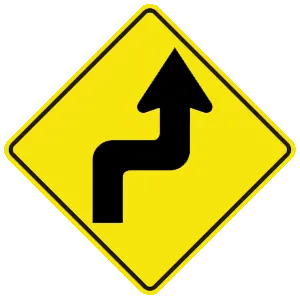Motorcycle Test | License NJ 2026 | FREE Online Practice! #11
Take this FREE motorcycle test (license in NJ 2026) to check your knowledge of the road rules. To improve your results, download a motorcycle handbook online, study theory, and practice for free on our website. Still worried about how to get a motorcycle license in New Jersey in 2026? Check our website for more sample tests, train as much as possible, and boost your grades!
1 . To effectively provide protection for a motorcycle rider, pants should:
For your protection, you should wear pants that cover your entire legs and are made of leather or another sturdy synthetic material. Clothing should fit snugly enough that it does not flap in the wind but not so snugly that it restricts your movement.
2 . A leather jacket:
For your protection, you should wear a long-sleeved jacket, ideally made of leather, when riding. In warm weather, a leather jacket can help protect you against dehydration. Many motorcycle jackets are designed to help keep you cool even when the weather is hot.
3 . A child passenger:
A child passenger on a motorcycle should always ride immediately behind the operator. A child sitting in front may be unable to balance properly and could interfere with the operator's use of the controls.
4 . Mirror checks:
For your safety, it is important to be aware of what's behind you. Frequent mirror checks should be a part of your normal searching routine.
5 . This road sign means:

This sign indicates that the road ahead turns sharply to the right and then sharply to the left.
6 . When riding behind a car, you should:
When riding behind a car, you should position yourself so you can be seen in the other driver's rearview mirror. Riding in the center portion of the lane will generally ensure that you will appear in the middle of their rearview mirror, where the driver is most likely to notice you.
7 . In which of the following situations should you increase your following distance?
While a two-second following distance is generally adequate, you should increase your following distance any time conditions would require a longer stopping distance, such as when the pavement is slippery due to poor weather conditions. Additionally, you should increase your following distance at night, if you cannot see through the vehicle ahead, and when traffic is heavy.
See the exact questions that will be on the 2026 New Jersey DMV exam.
99.2% of people who use the cheat sheet pass the FIRST TIME
Jeneen was tired of paying $5/gallon. She got herself a scooter that required the motorcycle license. She studyed the motorcycle test cheat sheet and passed her test the next day!
Christopher tells us how he knew nothing prior to obtaining the motorcycle study guide, and he only got one question wrong because he clicked on the wrong answer by mistake.



